27 endangered slow lorises have been rescued from traffickers and they look pretty happy about it
Most of trafficked animals die before they reach the markets they are intended for
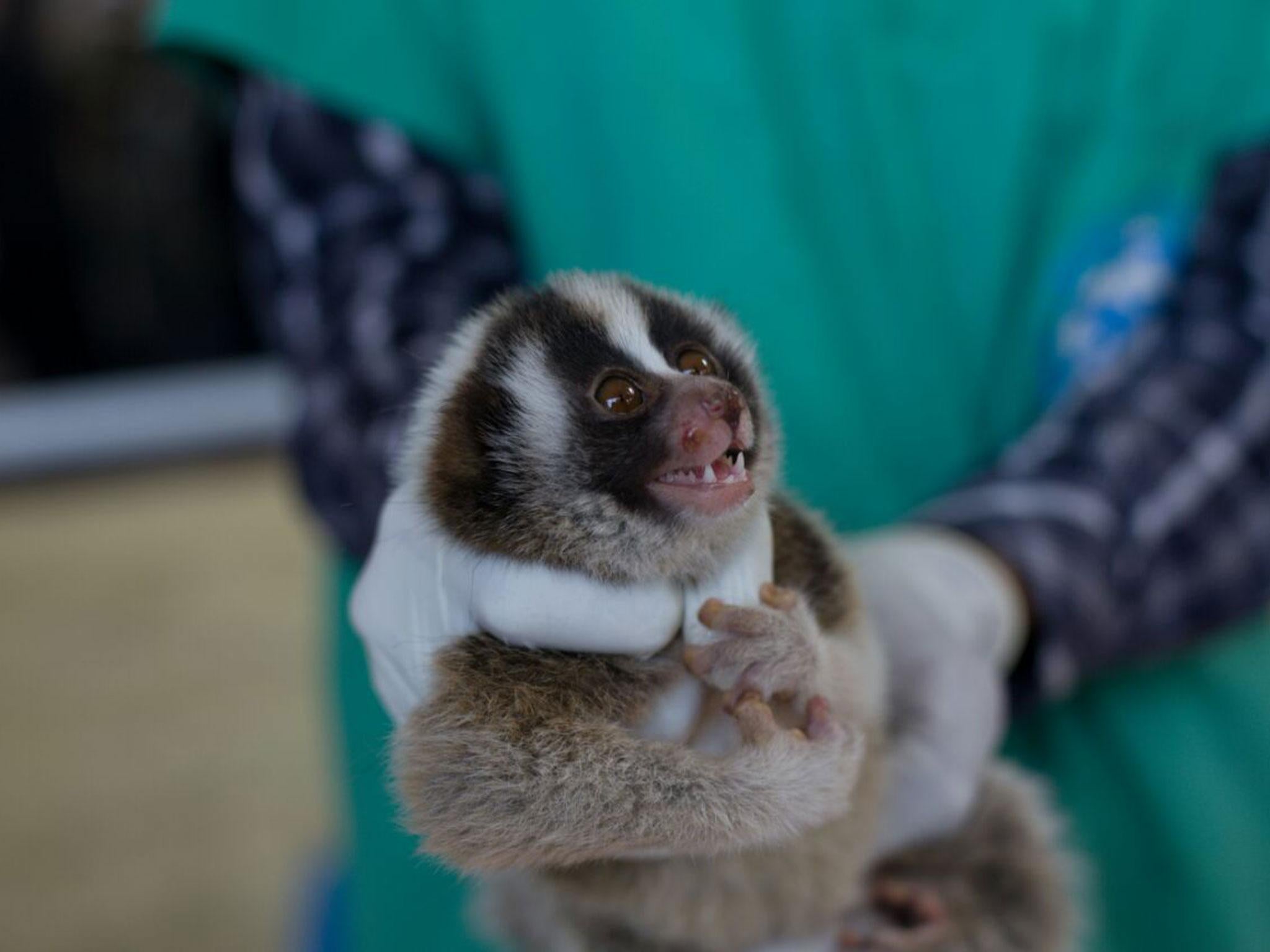
Your support helps us to tell the story
From reproductive rights to climate change to Big Tech, The Independent is on the ground when the story is developing. Whether it's investigating the financials of Elon Musk's pro-Trump PAC or producing our latest documentary, 'The A Word', which shines a light on the American women fighting for reproductive rights, we know how important it is to parse out the facts from the messaging.
At such a critical moment in US history, we need reporters on the ground. Your donation allows us to keep sending journalists to speak to both sides of the story.
The Independent is trusted by Americans across the entire political spectrum. And unlike many other quality news outlets, we choose not to lock Americans out of our reporting and analysis with paywalls. We believe quality journalism should be available to everyone, paid for by those who can afford it.
Your support makes all the difference.A total of 27 Javan slow lorises have been rescued from illegal online traders in Indonesia, as part of ongoing efforts to save the critically endangered species.
Two illegal traders in Indonesia were caught by police and forestry officials in two separate operations. The first involved a raid on an online trader in Cirebon, West Java, where 19 endangered Javan slow lorises were rescued.
A day later, police in Majalengka, also in West Java, caught another online trader and rescued eight more of the animals as they were being packed into plastic boxes to be transported to Yogyakarta.
The animals were taken to the International Animal Rescue (IAR) in Ciapus, where preliminary medical examinations showed many of them were dehydrated, with some suffering eye infections.
Rescuers said the animals’ teeth remained intact, though these are usually clipped by traders without anaesthetic or after care.
Twenty five adult animals and two juveniles were rescued in the operation, one of which was a newborn that died on the way to the rescue centre.
Usually the mortality rates of trafficked slow lorises is high, with as many as 80% of the animals dying before they reach the markets or the buyers they are intended for, Christine Rattel, programme advisor at International Animal Rescue Indonesia (IAR), said.
“Traders load the lorises together in small, cramped crates after poaching them from the wild, and this causes them wounds, stress, and sometimes serious medical problems that may even result in death,” she said.
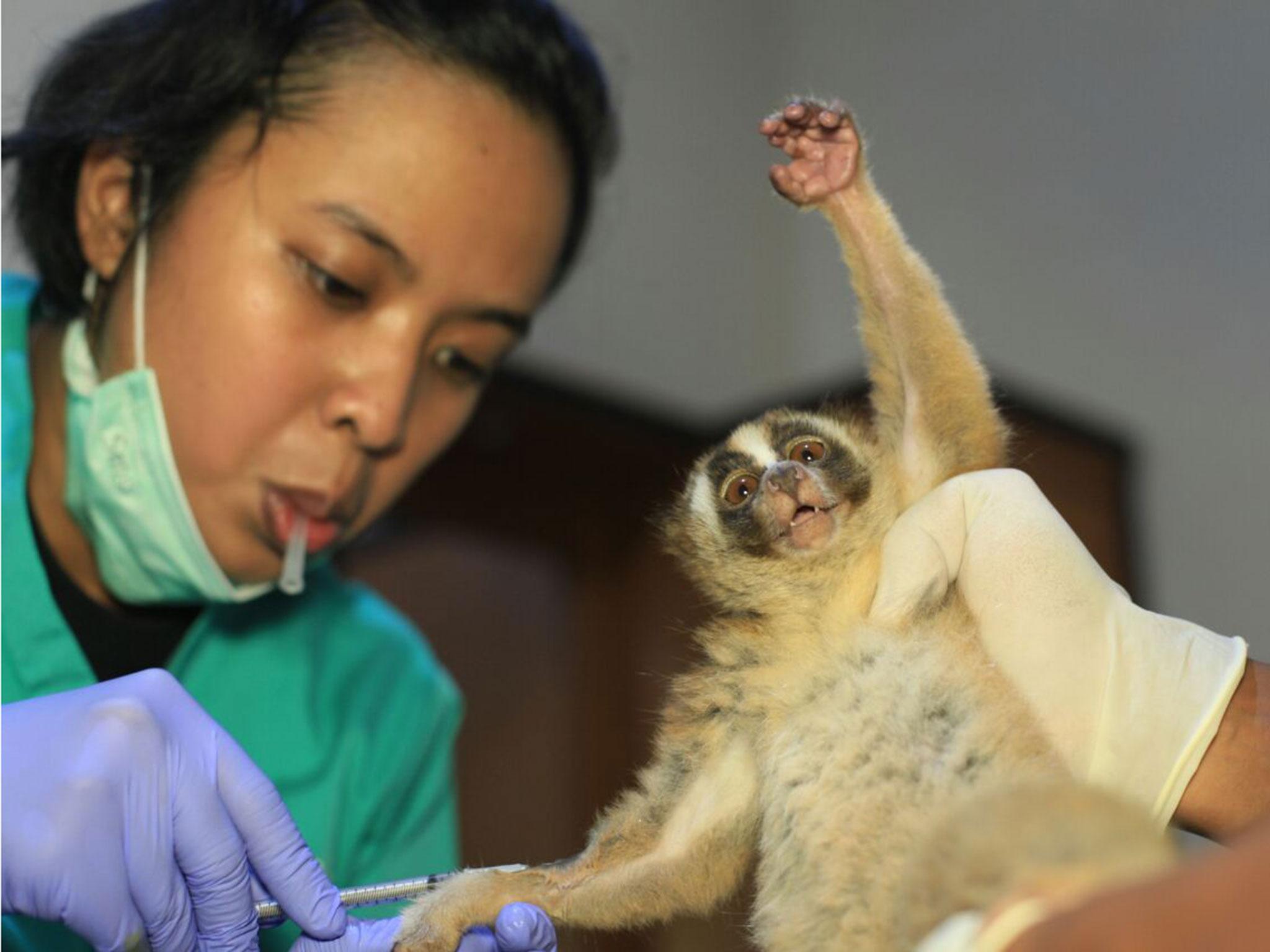
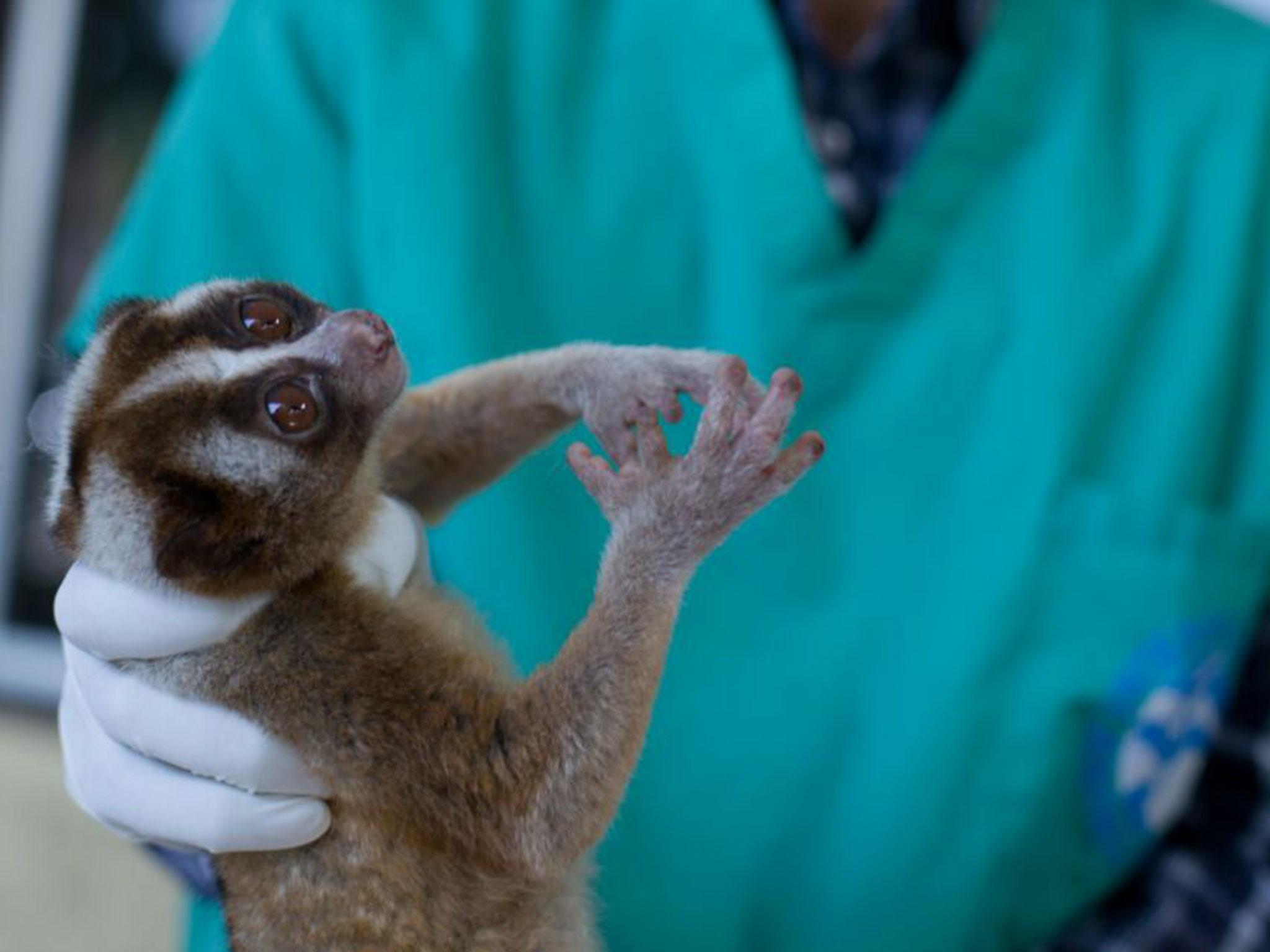
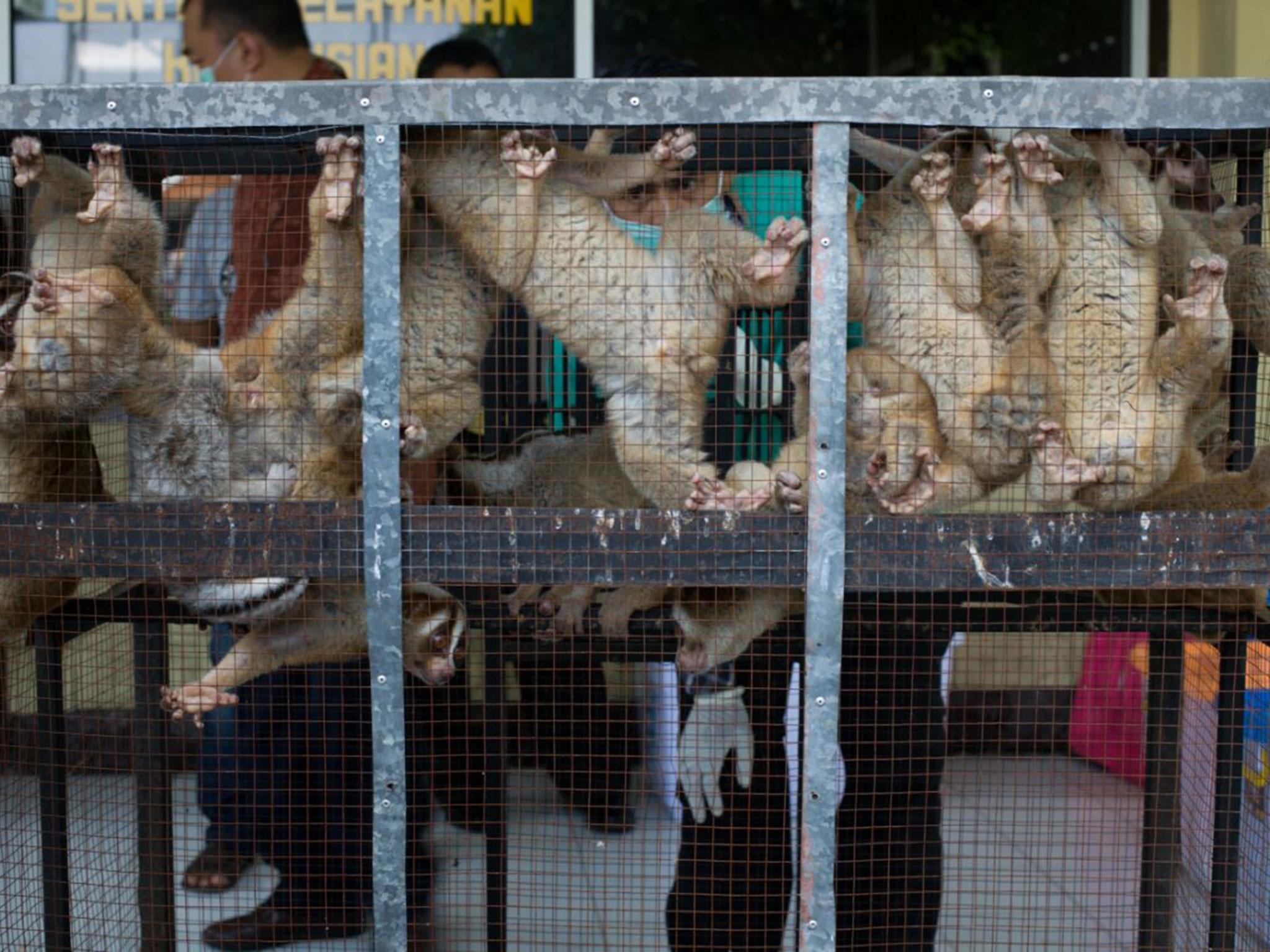
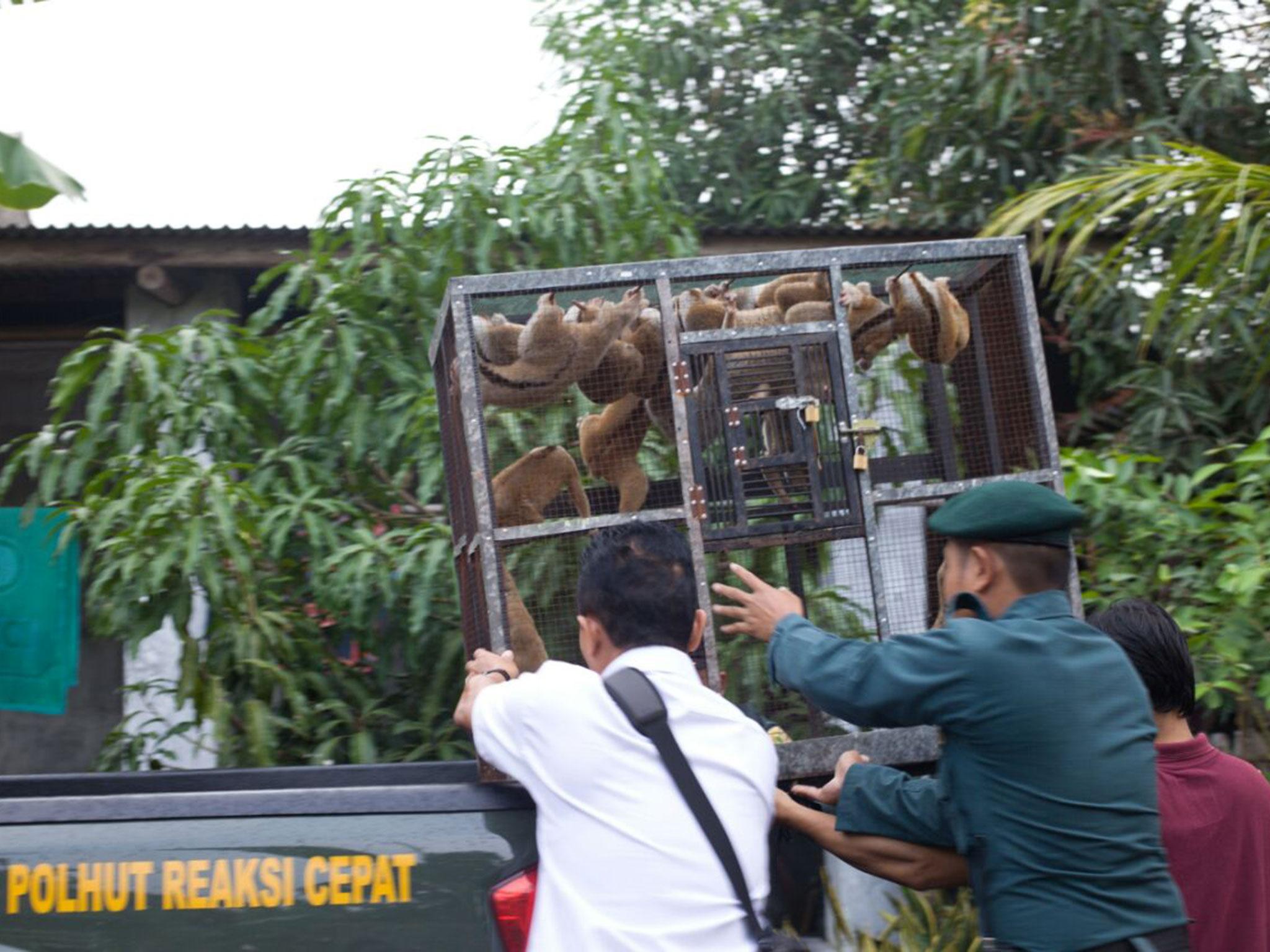
Slow lorises are on the International Union for the Conservation of Nature and Natural Resources’s (IUCN) red list of threatened species, with authorities striving to prevent them being sold as pets.The animals have also been named by the organisation as one of the 25 most endangered primates in the world.
Achmad Pribadi, head of the Sub-Directorate for the Protection and the Security of Forests, stressed the need to take immediate action against the illegal trade of slow lorises, or “they could disappear within five years”.
“We are sending a strong message to all online traders of wildlife that law enforcement does not tolerate such cases of illegal wildlife trade," he said.
People caught illegally trading wild animals in Indonesia risk a five year terms in jail and a fine of 100 million Indonesian Rupiah (£6,000).
Join our commenting forum
Join thought-provoking conversations, follow other Independent readers and see their replies
Comments